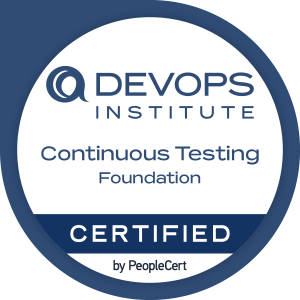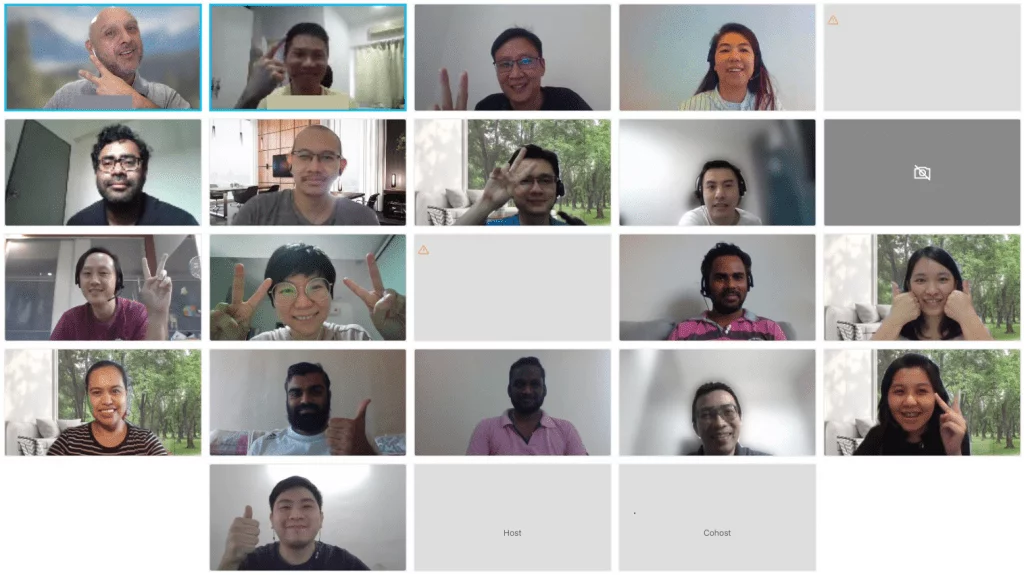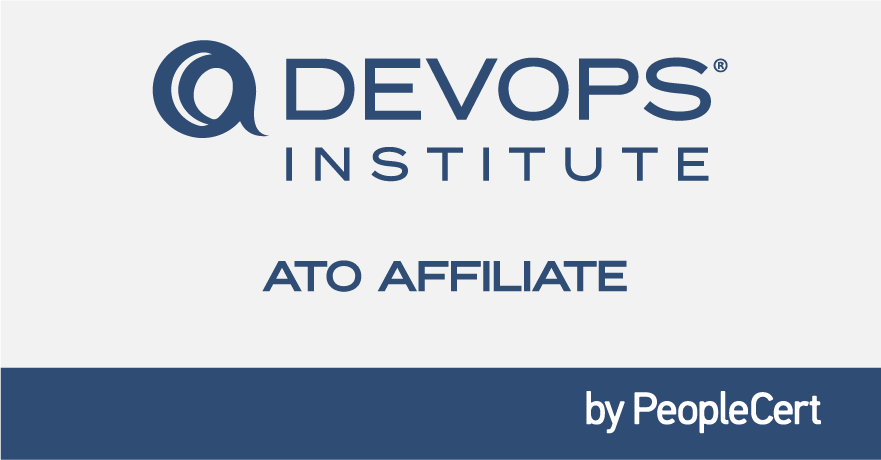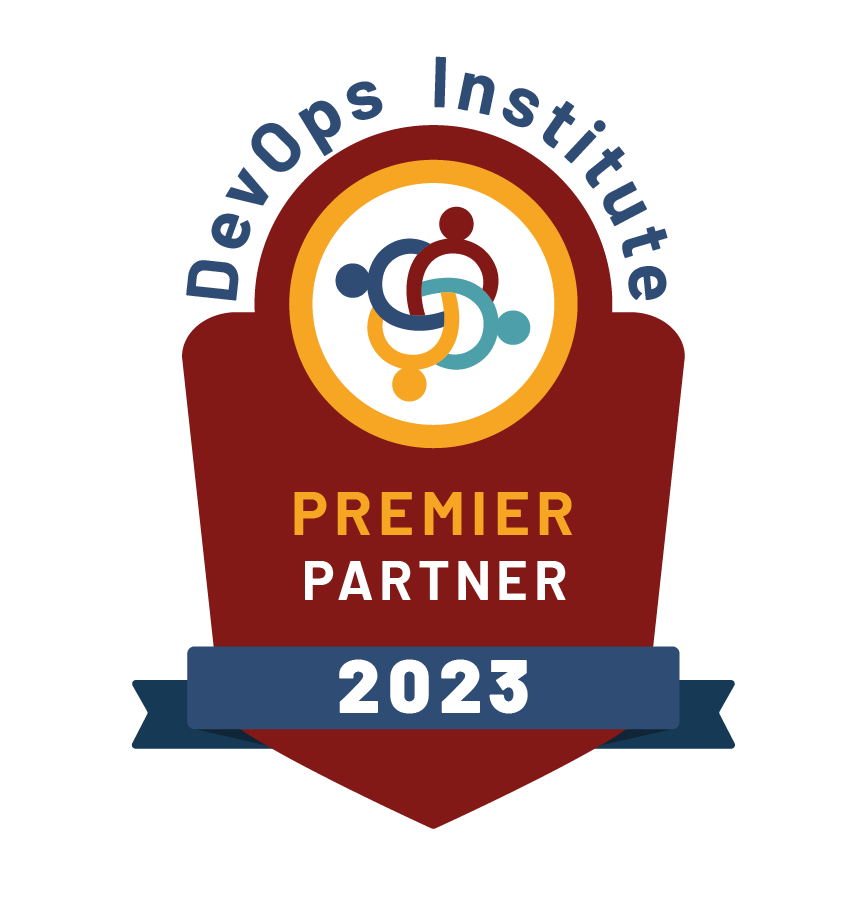
Minimise business risks and impact on customers with Continuous Testing
Learn how to apply Scrum practices to Process Owner responsibilities and use Agile and Lean principles and practices and how to continually align process performance with overall business goals.


DEVOPS INSTITUTE® and the Swirl logo are registered trademarks of the Peoplecert Group. Used under licence from Peoplecert. All rights reserved.

DevOps Premier Partner
Sapience's Accredited Trainers have gone through a vetting process with DevOps Institute, and official material will be provided.
Introduction
Course Duration : 2 Days Instructor-Led Classroom Training
Learn about DevOps to support organisational effort in reducing costs while increasing agility, quality and customer service. Leverage case studies, realworld success stories, and metrics to demonstrate business success in this foundation-level course to support digital transformation.
- What is DevOps Testing and its Business Benefits?
- Relation of DevOps testing to other test methodologies
- DevOps testing best practices
- DevOps Testing Terminology
- Culture changes
- Organisation changes
- Process and team friction
- Motivation strategies
- Measuring Success
- Continuous Evolution
- Troubleshooting
- What is the DevOps pipeline?
- DevOps Testing on the pipeline
- Test strategy choices
- Pre-Flight strategies
- Continuous Integration Testing
- System, Delivery and Customer Testing
- Test Environments
- Lab Management
- Topology orchestration
- Test Automation Frameworks
- Test Tools
- Selection criterion
- Automated metrics
- Key concepts
- Test Case Best Practices & Design
- Test Suite Best Practices & Design
- DevOps Test Management Metrics
- DevOps Management Tools
- DevOps Test Results Analysis
- Integrating DevOps Results Analysis
- Test Management Exercise
- Fictitious Product Test Requirements.
- Purpose, benefits, concepts and vocabulary of DevOps testing
- How DevOps testing differs from other types of testing
- DevOps testing strategies, test management, and results analysis
- Strategies for selecting test tools and implementing test automation
- Integration of DevOps testing into Continuous Integration and Continuous Delivery workflows
- How DevOps testers fit with a DevOps culture, organisation, and roles.
- Delivery Staff
- DevOps Engineers
- IT Managers
- Project Managers
- Lab Staff
- Maintenance and Support Staff
- Quality Assurance Managers
- Quality Assurance Teams
- Release Managers
- Testers
- Software Engineers.
EXAMINATION FORMAT
- 40 Multiple Choice
- 1 mark per correct answer
- 26 marks required to pass (out of 40 available) – 65%
- Sixty minutes duration
- Web-based Open-book exams.
Why Us?
Complimentary refresher
Participants can attend a complimentary refresher if they wish(1-year validity and subject to approval)
Post-training support
Should you have questions after the course, you may contact the trainer for assistance regarding course material
E-learning Portal Access
1 year access to our E-learning portal. Including: - E-books available for download - Official sample exam - Randomised quiz formulated by Sapience Trainers based on past examinations
Meet Your Trainer
Principal Consultant
Sapience Consulting
Senior Consultant
Sapience Consulting
Senior Consultant
Sapience Consulting
Senior Consultant
Sapience Consulting
Senior Consultant
Sapience Consulting
Consultant
Sapience Consulting




